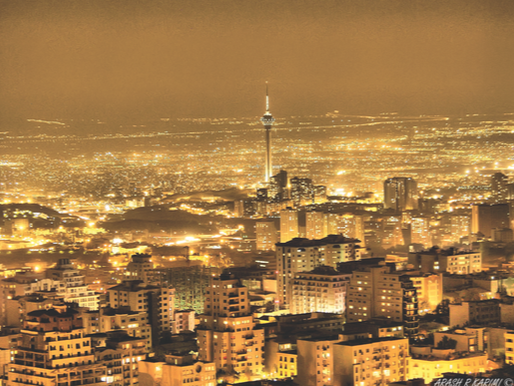As instability in the region shows no signs of abating, the launch of a dialogue between the new administration in Washington and Iran is seen in the West and the Middle East alike as important for durable peace. While helping to solve long-standing regional issues, including problems like Gaza that affect stability in the Levant and beyond, talks between Tehran and the US could also shore-up the iffy American position in the region.
At the same time, Tehran’s need for friends and partners internationally will nudge it along the path to Washington. As with any sound diplomacy, a new approach to Iran needs sticks as well as carrots. Regarding the former, Germany said late last year that it wanted further sanctions to be imposed against Iran, hitting the bank and transport sectors. The suggested new measures aim to give the incoming US administration further means of pressure on Iran in any future dialogue, offering the carrot of incentives along with the threat of tougher sanctions over Tehran’s nuclear ambitions.
Iran, a leading oil and gas producer, denies seeking atomic weapons and says that its nuclear program aims to provide energy for a growing population when reserves of fossil fuels run out. At first glance, such an argument may appear strange, given that Iran has a massive reserve of hydrocarbons — especially gas, in which it is a world leader. For the time being, however, Tehran’s internal energy equation is precarious, but not because of lack of gas or crude oil underground. Rather, it is a question of politics and pricing.
One problem in this respect is that Tehran’s populist government tries to keep the poor happy through a subsidy system. Direct and indirect subsidies on goods in Iran amount to the equivalent of many tens of billions of dollars a year. However, under increasing financial pressure, Iran is considering a measure that would abolish costly subsidies on fuel and electricity, while compensating poorer people with cash. Currently falling oil prices encourage this and similar steps, which are part of a wider plan to make the country more efficient. Gasoline and electricity, among other basic items, are very cheap in Iran, but if the proposed measure comes into effect, prices of such vital supplies will rise at least fourfold.
Yet the point is being made in Tehran that prices need to become a reflection of real economic forces for the system to be reformed and that 60 percent of the money saved would, in any case, be used to boost the spending power of people with low and middle incomes. One of the basic problems of the Iranian economy is that despite the country’s wealth of varied natural resources, oil revenues still account for 80 percent of foreign currency receipts, making Tehran highly vulnerable to petroleum price shifts. The inability to diversify is partly due to lack of foreign investment and other forms of failure by Iran to engage with the world economy.
Meanwhile, crude output might fall drastically and the Islamic republic could even cease exports because of ageing oil fields and a lack of foreign technology. Crude oil production may drop to as little as three million barrels per day (bpd) by 2015 from over four million last year and the country could even halt petroleum exports (having shipped about 2.3 million bpd overseas in 2008).
Is this unthinkable? No. Without major new investments in Iran, its output and exports of crude oil will surely drop over the next few years. Though the Iranians are the second-largest producer in the Organization of Petroleum Exporting Countries, Tehran faces the prospect of an eight percent annual decline in production over the next decade because of the twin problems of lack of investment and old technology. Sanctions by the West and the tight credit market resulting from the global crisis have continued to cut financing for Iranian projects, while a lower demand for energy has already caused crude oil prices to sink. As a result, Tehran is looking for new partners to develop major projects, but because of sanctions, cannot find them in the technologically advanced West.
One of the problems for Iran’s energy sector is that it extracts less oil from the ground because of lack of adequate projects to enhance recovery. New developments using high technology could help compensate for natural declines in mature oil fields. But unless current impediments facing the oil industry are removed, rising internal demand may force crude exports down to one million bpd by 2015. This makes reconciliation with the West even more urgent.
The alternative is more Western-Iranian enmity, which risks destabilizing the Levant, the Gulf and eventually the whole world.
Riad al Khouri is senior fellow of the William Davidson Institute at the University of Michigan in Ann Arbor

